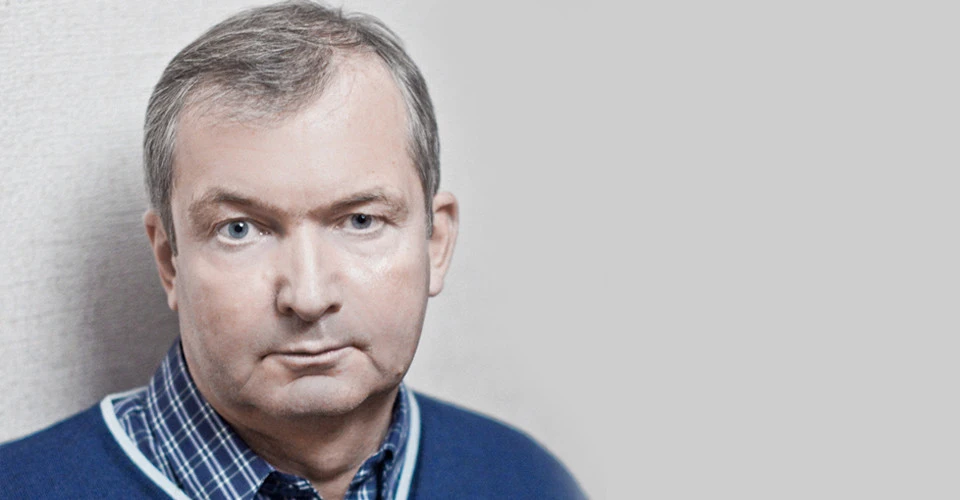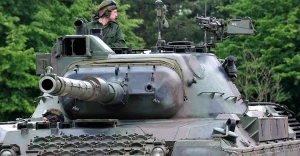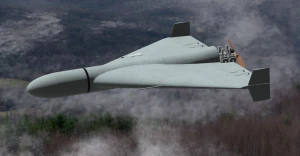
End of Putin's adventure: What will happen to Russia after bunker dictator?
The assurances of some current Russian opposition politicians that a "new democratic Russia" could emerge after Putin sound like an oxymoron. There are no such examples in their history and culture, and there never were
Despite the fact that Putin does not want to end the war with Ukraine and withdraw from Ukrainian territories, the dynamics of events show that the end game seems to be approaching. Moscow's failures on the frontlines and inability to gain the initiative, which may increase dramatically after the Ukrainian army's offensive, may determine the fate of the Russian dictator in the near future.
However, there is no charismatic statesman in the Russian Federation who, after the end of the Putin era, would be ready to seize power with his team. There is only a motley political set of bloodthirsty warmongers and ambitious pseudo-liberals who will pull the blanket of power over themselves when Putin is removed from the country's leadership in one way or another.
"In the end, it could end up with Russia tearing itself apart in this irreconcilable confrontation."
The Russian Federation has never been a true democracy, even under Mikhail Gorbachev. And the attempt to imitate this during the presidency of Boris Yeltsin only produced another totalitarian ruler, Putin. Russians are attracted to strong men who promise security while plundering Russia's resources and crushing any dissent. It seems that all of this is already embedded in the national genetic code of Russians.
"Russians are a nation that always needs a tyrant."
That is why the assurances of some current Russian opposition politicians that a "new democratic Russia" could emerge after Putin sound like an oxymoron. There are no such examples in their history and culture, and there never were. The Russian population has a completely different worldview, and the entire society is riddled with corruption and nepotism.
And here the main thing for the collective West is to avoid making the same fundamental mistake that it made in 1991 after the collapse of the Soviet Union. Humanizing the Russian Federation is impossible. After all, Russia is absolutely incompatible with the Western European values that the European Union supports. And another attempt to see in the eyes of Putin's successor a desire to make Russia a civilized state will only give Russia another breathing space, during which it will have time to prepare for the next war.
This was already the case when the United States and the European Union, after the collapse of the USSR, tried to support Russia in every way possible and bring it into world civilization. And the inclusion of the Russian Federation as the eighth member of the G7 was an unprecedented step in global geopolitics. Which the dictator later assessed as a weakness of the Western community. This, in fact, prompted him to attempt to return to Russia the superpower status once enjoyed by the USSR and to revive the Soviet Union itself at any cost.
"After the USSR lost the Cold War, America and Europe tried very hard to show Moscow that it had a chance to become an ally of the West and made attempts to encourage Russia to democratize, but nothing came of it."
Now, the revolution in Russia can lead to civil war and a showdown between the various nations occupied by the empire. After all, the borders between the autonomous republics of the Russian Federation were created by the rulers at their own discretion, and now they can be challenged by those who disagree with them. Therefore, instead of 20 or 30 new independent states, the torn map of the Russian Federation may have as many small North Koreas, which will create big problems for the international community if we do not start thinking about how to avoid confrontation between them now. As well as how to prevent China from annexing vast areas of the Far East and Siberia, including the strategic ports of Vladivostok and Nakhodka, by force.
If the situation continues to evolve in this way, Russia (or what is left of it) will suffer greatly from political instability over the next few years for many reasons. Not least because of Putin's forced removal from the role of "supreme leader" and the likely economic turmoil in early 2024.
If the new Russian elites who will replace Putin's manage to reach an agreement with the United States and Europe on preserving the integrity of their state, this can only be agreed to in exchange for the Russian Federation's voluntary renunciation of its nuclear status and the reduction of the regular army to no more than 100,000 troops.
"However, whatever happens next in Russia, its future will be confusing and unpredictable. Western countries should be prepared for a wide range of options and possible outcomes in Russia after Ukraine's victory."
The paradox of the end of Putin's geopolitics may be that Putin's successors will have to ask America and Europe for help in confronting China. After all, despite the fact that Moscow constantly presents Beijing as its ally, the reality is diametrically opposite. China is biding its time and, along with India and the Philippines, has already canceled major arms deals with Russia.
The Kremlin prefers to turn a blind eye to the fact that the People's Republic of China is once again making statements about the "annexation of Amur" and its intention to regain Eastern Siberia, which was annexed by Russia. Meanwhile, these Chinese statements have a serious basis. Since Russia's annexation has completely deprived China of access to the Sea of Japan, and thus to the Pacific Ocean, these territories are of great economic and military importance, not just a matter of wounded national pride. Chinese maps already show Eastern Russian cities with Chinese names. While Putin's army is 10,000 kilometers away and fighting a losing bloody war in Ukraine, the Chinese have no choice but to cross the border and occupy these lands.
Although another option is possible.
"When China assesses its chances to quietly take over huge chunks of sparsely populated and resource-rich eastern Russia, it will act less hastily. Chinese firms are already doing this in practice, bribing local officials to "look the other way" as they bring in huge labor forces to deforest and destroy local wildlife to provide much-needed ingredients for both restaurants and alternative medicine."
Australia went down the same path when the Chinese bought up nine million hectares of Australian land in the hinterland before Canberra realized that China was trying to build a country within a country. It took a long time for the Australians to realize what was really happening and to stop it. But under Putin's regime, Russia will not be able to stop Chinese expansion into its territory.
However, China's illusion of becoming a global hegemon may cost China as much as Russia. The non-Western world, particularly Asia, is now moving decisively toward the West. Japan, South Korea, Taiwan, Vietnam, and the Philippines all have US bases. Vietnam is planning to expand its US base, and Thailand and Indonesia are negotiating with the United States on such bases. Some of these countries are members of the defense geopolitical Association of Southeast Asian Nations (ASEAN), which, along with the United States, is concerned about China's attempt to dominate the region, and especially the South China Sea.
Neither China nor Russia will succeed in ousting the United States from the Asia-Pacific region or in gaining the same superpower status as America. The world, as it has been for more than thirty years, will continue to be unipolar. And the convergence of American and European positions during Russia's war in Ukraine opens up completely new prospects for North Atlantic unity that were unimaginable before.
"Russia needs to be pushed back to its rightful place on the list of third world countries and kept there until it adopts a more democratic style of government and can live in peace with its neighbors."
If Russia is not defeated now and remains in all its previous dimensions, then after the Russian invading forces are expelled from Ukraine, there will be an "operational pause" during which Russia will rebuild its broken army. And then, equipped with the Kremlin's version of the Hitler Youth, the Russian Federation will look for weaknesses in the defense of Ukraine and Europe and resume its war with the West. To avoid this, Ukraine should be admitted to NATO as soon as possible, avoiding the opposition of Hungary and Turkey and voting for this decision by a majority of the member states of the North Atlantic Alliance.
Judging by the nuclear rhetoric spewed by the Kremlin and the Putin regime's complete disrespect for non-nuclear weapon states, as evidenced by its disregard for the Budapest Memorandum, Russia continues to be a nightmare for global security. Western intelligence agencies are well aware of the location of nuclear weapons. Therefore, preemptive action in case Russia splits into mini-states and takes control of the entire nuclear arsenal of the former Russia should be an absolute priority for the United States and the EU.
The inevitability of a military defeat in Ukraine and the ever-increasing sanctions mean that Russia has no future. Russia is now forced to sell its oil only at a huge discount, barely above cost, resulting in a significant drop in revenues, and the war in Ukraine requires huge additional costs.
In order to restore at least some of its contacts with the West and not be eaten alive by China, the Russian state (or at least the part of it that is not immediately occupied by China) will have to agree to pay reparations to Ukraine, which will mean pledging its oil, gas, diamonds, and selling gold for generations to come. Also, Putin's billions of dollars plus frozen Russian assets in the West would make a significant contribution to the total amount of reparations.
Civil war and regime change usually lead to improvements, but not in the case of the Russian Federation. Russia is Russia as it has always been. Putin is only its latest "tsar." A post-Putin Russia is unlikely to avoid political collapse. And it is very important for us that this collapse does not spread to Ukraine or other European countries.
Source
About the author. Viktor Kaspruk, journalist.
The editors don't always share the opinions expressed by the authors of the blogs.
- News














































